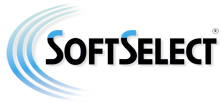
IFS Study reveals ERP could mean Excel Runs Production
According to the study of more than 281 manufacturing executives, 75 percent of study respondents aged 35 and under report using desktop spreadsheet software like Microsoft Excel instead of their company’s ERP, customer relationship management (CRM), supply chain management (SCM) or other enterprise software when those enterprise applications get too cumbersome or difficult to use. Among respondents aged 36 to 45, 58 percent said they would use desktop spreadsheet software instead of their company’s designated enterprise applications.
Respondents also said they would consider using a broad array of free and low-cost web-based applications instead of their company’s enterprise applications. Google Docs was cited most frequently, a free, Web-based word processor, spreadsheet, slide show, form, and data storage service offered by Google. Google Docs may be seen as a stand-in for a company’s own document management system, or a way to compensate for ERP or other application environments that lack integrated document management capabilities.
Perhaps most surprisingly though, more than 65 percent of respondents age 35 and younger would be at least somewhat likely to change jobs due to negative experience using their company’s enterprise software.
“Employers invest in attractive offices and other benefits designed to attract and retain young talent, but this study makes it clear that the enterprise software people use every day has a significant impact on the quality of life for today’s professionals,” IFS North America Chief Technology Officer Rick Veague said. “IFS sees ERP usability as essential not only because of this issue, but because when employees work outside of ERP, they are reducing enterprise visibility, increasing enterprise risk and in general diminishing the value their employer is realizing from their investment in enterprise software.”
Study data illustrates the strategic importance of enterprise software usability, particularly in industries IFS serves that are characterized by a high degree of complexity and diversity. According to Veague, the need to ensure IFS Applications streamlines complex processes rather than adding additional complexity has driven IFS to continually invest in usability in order to ensure that IFS Applications leads what he hopes will be a usability revolution in enterprise software.
“A company that is making a product and placing it on the shelf could certainly benefit from a usability-optimized enterprise suite like IFS Applications,” Veague said. “But our customers, complex engineer-to-order manufacturers, project-driven companies, asset-intensive companies, the aerospace and defense sector and the electric generation industry, are faced with daunting complexity. Poorly designed enterprise software represents an additional layer of confusion. As ERP becomes more intuitive, this degree of complexity can be resolved somewhat, and real business efficiencies achieved.”
Artikel vom 08.07.2011
Schlagwörter: ERP
- Business Software
- Softwareauswahl
- Softwareanbieter
- ERP-Software
- BI-Software
- HR-Software
- DMS/ECM-Software
- CRM-Software
- Neutrale Beratung
- Softwareberatung
- Philosophie
- Projektbegleitung
- Expertentag
- Systemintegration
- Vertragsprüfung
- Warum Beratung?
- Referenzen
- News & Studien
- SoftTrend IT Studien
- Software Guides
- SoftTrend IT News / Artikel
- Marktforschung
- Marktforschungsbereiche
- Auftragsstudien
- Partnerrecherche
- Anwenderbefragungen
- Benchmark Tests
- Events & Stellenangebote
- IT-Veranstaltungen
- IT-Stellenangebote
- Software Know-how
- Wissenspool
- Anwenderberichte
- Whitepapers
- DDoS-Schutz
- Webcasts / Videos
- Glossar / Lexikon
Seiteninterne Suche auf SoftSelect.de
Aktuelle Business IT News
Pressemeldungen kommen mit dem SoftSelect Newsletter direkt in den Posteingang von über 7000 IT-Entscheidern. Wollen Sie nicht auch die Bekanntheit Ihrer Firma steigern?
Wachstumschancengesetz und Payroll: Was nun bei der Entgeltabrechnung zu beachten ist
GROW with SAP – ein neuer Weg zu S/4HANA
Präzise Liefertermin-Berechnung für optimierte Vertriebsprozesse mit VlexPlus ERP
Fragen zur Business-Software-Auswahl
Zufallsfrage rund um den ERP-, CRM-, Service Management- und Human Resources- Business-Software-Auswahlprozess, beantwortet von unseren Experten.
Was ist der Unterschied zwischen ECM und einem DMS?
Diese und weitere Fragen werden von unseren Experten unter Expertenfragen beantwortet.


